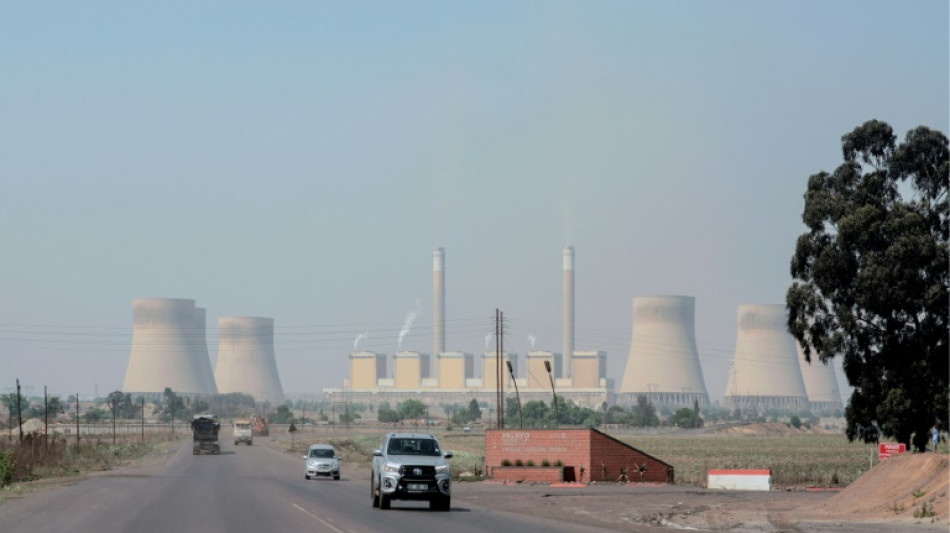S.Africa to press rich nations for more money at COP27 / Photo: Luca Sola - AFP
South Africa needs much more money to green its economy than what rich nations have promised so far, President Cyril Ramaphosa said on Friday, ahead of a key global climate summit.
Ramaphosa is due to travel to Egypt in the coming days to attend the COP27 meeting, where funding for Africa's green transition is likely to be a flashpoint.
Last year, South Africa, the continent's most industrialised economy, secured $8.5 billion in loans and grants from a group of rich countries.
But Ramaphosa said the money was not enough, with a just transition investment plan released on Friday suggesting Pretoria will need about 1.5 trillion rand ($83 billion) over the next five years.
His comments come after the World Bank earlier this week said South Africa would need around $500 billion by 2050 to achieve carbon neutrality.
"We need much greater funding than what has been put on the table," Ramaphosa told an online sitting of the Presidential Climate Commission.
"And in going to COP27, that's precisely the message that we will be taking forward."
Ramaphosa said South Africa was working with international partners to find additional funding, adding that some already said they are willing to make new proposals.
The president said he has stressed the need to increase the share of grants to avoid adding to the country's already heavy debt burden in talks with other leaders.
"The key challenge for South Africa and our sister countries on the continent is access to new, at scale and predictable funding that does not further exacerbate our debt crises," he said.
Key areas in need of investment included the electricity and the green hydrogen sectors, as well as initiatives to ensure a just transition, Ramaphosa said.
- 'Hold developed economies accountable' -
South Africa, one of the world's top 12 largest polluters, generates about 80 percent of its electricity through coal.
The World Bank on Friday said the country has been granted financing of $497 million to decommission one of its largest coal-fired power plants and convert it to renewable energy.
Leaders of a divided world meet in the resort town of Sharm el-Sheikh this month tasked with taming the terrifying juggernaut of global warming as they face gale-force geopolitical crosswinds, including the war in Ukraine and economic turmoil.
UN chief Antonio Guterres said Thursday it was time for a "historic pact" between developed and emerging countries, with richer nations providing financial and technical assistance to help poorer ones speed up their renewable energy transitions.
On Friday, Ramaphosa criticised Western nations, saying some were re-opening old coal-fired plants and tilting back towards fossil fuels in the wake of the conflict between Russia and Ukraine, having told the world to move away from such sources.
Meanwhile, commitments to make $100 billion per year available to help developing countries decarbonise and adapt to climate change have not been fulfilled, Ramaphosa added.
"We have an obligation to hold developed economies accountable by making sure that they do honour the financial commitments that they undertook," he said.
D.Wason--BD
